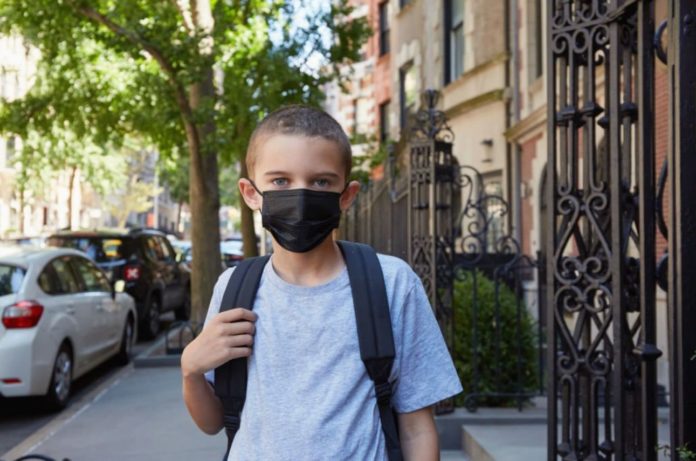A study from the University of Kansas Cancer Center found that people with blood-related cancers are more likely to get a COVID-19 infection, even if they have been vaccinated.
Patients with blood-related cancers, such as leukemia, lymphoma, and multiple myeloma, are 1.6 times more likely than other cancer patients to experience breakthrough COVID-19, according to researchers of the study, which was published in the Journal of Hematology & Oncology.
In addition, regardless of the type of cancer, they were treating, individuals who were taking anti-cancer therapy at the time of their COVID-19 vaccination were 2.7 times more likely to experience breakthrough infections leading to COVID-19. Chemotherapy, immunotherapy, and radiation are examples of anti-cancer therapies.
For cancer patients, their loved ones, and friends, this ground-breaking infection study, according to the authors, offers useful information.
In order to prevent infection, these patients and their loved ones should be sure to discuss immunization, avoiding high-risk behaviors, and accessing currently offered pre-exposure prophylactic medicines with their oncologists, stress the authors.
Evusheld, a medicine combination offered under the brand name, is one example of a pre-exposure therapy. Evusheld was given emergency approval by the U.S. Food and Drug Administration for anyone who would not be able to mount a sufficient defense against the SARS-CoV-2.
The study’s impact
Numerous studies have been conducted to determine how much more susceptible cancer patients are to SARS-CoV-2 outbreak infections than the general population. This study’s findings about individuals with blood-related cancers, also known as hematologic malignancies, which are distinguished by cancer’s emergence in the blood or blood-producing tissues, are what makes it significant.
This study didn’t compare vaccinated blood cancer patients to the general population, but the authors highlighted a recent study in Washington state that looked at outbreaks of infections in the general population during the same time period as KU Medical Center’s study. Only 0.02% of vaccine recipients experienced a breakthrough, according to the Washington study. The KU Medical Center investigation’s study of blood cancer patients found that the breakthrough rate was 1.1%.
The study authors advised against making direct comparisons between the two percentages since COVID-19 impacts different geographic areas differently, even when the regions are assessed at the same time. Additionally, the direct comparison disregards variations in population behavior.
“Cancer patients may be more cautious or more likely to practice social distancing than other populations,” the authors added.
Why do they occur in the blood?
The study did not specifically address why blood-related malignancies have a higher likelihood of COVID breakthrough infection than other cancers, but, according to the experts, as “they are often cancers of the immune cells themselves” blood-related cancers affect the immune system more severely than other types of tumors.
“As such, patients with blood-related cancers,” according to the authors “are often not able to mount as robust of a response to vaccination and may not have the same degree of protection after receiving vaccines.”
According to them, another possible explanation is that the techniques of treatment that are utilized for these particular forms of cancer can suppress the immune system even farther than the treatments utilized for other types of cancer.
Data timeliness
The researchers were able to quickly provide study results in part because they had access to a specialized database. Instead of polling cancer patients one by one and then analyzing the results, researchers asked the University of Kansas Cancer Center Curated Cancer Clinical Outcomes Database, or C3OD, for information.
A group of informatics experts, led by David Streeter, head of cancer informatics for The University of Kansas Cancer Center and a co-author on the study, collected and quantified data from cancer patients and kept these statistics in C3OD.
“It is our belief that as a small, agile team, we were first to provide COVID cancer-specific data to our organization,” Streeter added. “Using the power of C3OD, we were able to provide very specific data that (otherwise) could not have been abstracted without it or in the time required.”
Similarly, Anthony Rooney, M.D., is a fellow in the Department of Hematology and Oncology at KU Medical Center, under the mentorship of Qamar Khan, M.D., professor of medical oncology acknowledged C3OD and the informatics team.
“With the help of our C3OD team, we were able to quickly identify our vaccinated patient population and obtain the information we needed to study breakthrough infections in this group of patients,” he added.
Initially developed to link cancer patients with appropriate clinical trials, C3OD has subsequently developed into a useful tool for researchers at the KU Cancer Center.
“Today’s clinical trial landscape includes trials with increasing complexity and decreasing patient treatment windows. Both aspects require a solution that can abstract data quickly, that is accurate, and that can curate complex data in such a way that makes it searchable and consumable,” Streeter added. “It is our belief that there must be technological intervention to provide solutions to these problems within the cancer research and analytics domains.”
The study’s authors hope that the findings will serve as a foundation for the medical profession to enhance institutional procedures for lowering the danger of infection in the susceptible cancer population.
To ensure that we can adequately counsel our patients about the risks of getting an infection, Rooney added that it is crucial to understand the rate of breakthrough SARS-CoV-2 infections and the outcomes of cancer patients who acquire breakthrough infections.
Image Credit: Getty
You were reading: Study Shows People 2.7 Times More Likely To Experience Breakthrough COVID Infections
